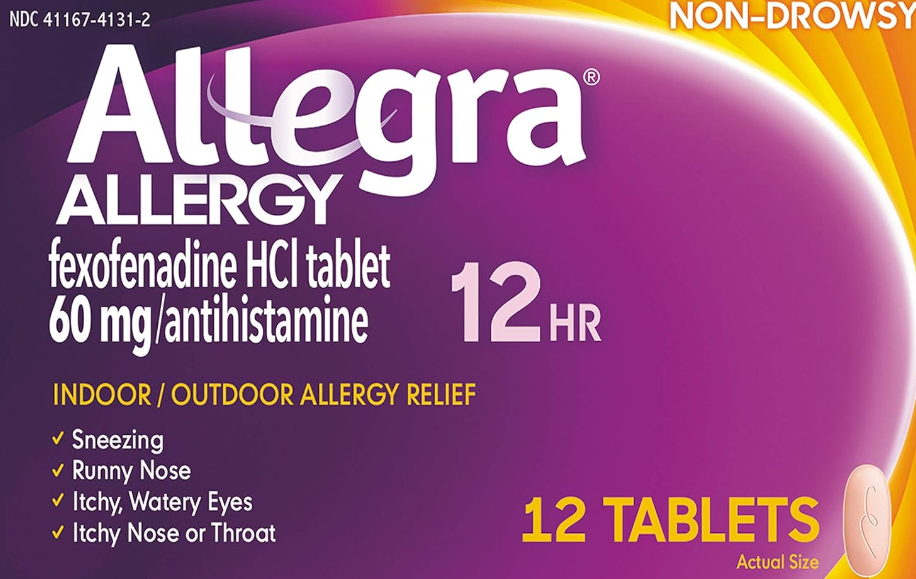BOURSESSENEGAL – When allergy season strikes, many people ask, “What are the best antihistamine for my symptoms?” Antihistamines are essential for managing allergic reactions and alleviating discomfort caused by histamine release in the body. This guide explores how antihistamines work, their types, potential side effects, and tips for choosing the right one for your needs.
What Are Antihistamine?
The Role of Antihistamine in Allergy Relief
Antihistamines are medications designed to counteract the effects of histamine, a chemical produced by the immune system during an allergic reaction. When you encounter allergens like pollen, dust mites, or pet dander, your body releases histamine. This release causes symptoms such as sneezing, itching, runny nose, and watery eyes. Antihistamines block the histamine receptors, reducing or eliminating these uncomfortable symptoms.
How Antihistamine Work
When you take an antihistamine, it travels through your bloodstream and binds to the histamine receptors in your body. By doing this, antihistamines prevent histamine from attaching to these receptors, which helps alleviate allergic reactions. This action can lead to quick relief from symptoms and improve your quality of life during allergy season.
Types of Antihistamine
Over-the-Counter vs. Prescription Antihistamine
Antihistamine are available in two main categories: over-the-counter (OTC) and prescription. While both types serve similar functions, their strength, dosage, and specific uses may vary.
1. Over-the-Counter Antihistamines
OTC antihistamines are accessible without a prescription and are often used for mild to moderate allergic reactions. Common options include:
- Diphenhydramine (Benadryl): Effective but can cause drowsiness. It’s best for nighttime use.
- Loratadine (Claritin): Non-drowsy option suitable for daytime use.
- Cetirizine (Zyrtec): Offers a balance between effectiveness and drowsiness, often providing quick relief.
- Fexofenadine (Allegra): Non-drowsy, great for daytime relief, and usually well-tolerated.
2. Prescription Antihistamines
For more severe allergies or conditions like chronic urticaria, doctors may prescribe stronger antihistamines. Examples include:
- Desloratadine (Clarinex): A more potent version of loratadine.
- Levocetirizine (Xyzal): A more effective alternative to cetirizine, often with fewer side effects.
First-Generation vs. Second-Generation Antihistamine
Antihistamines also fall into two categories based on their chemical structure and side effects: first-generation and second-generation.
1. First-Generation Antihistamine
These antihistamine were the first developed and tend to cause sedation. They cross the blood-brain barrier, leading to drowsiness. Examples include:
- Diphenhydramine
- Chlorpheniramine
These are suitable for nighttime use or when sedation is beneficial.
2. Second-Generation Antihistamine
Second-generation antihistamine are less likely to cause drowsiness. They target peripheral histamine receptors, making them ideal for daytime use. Examples include:
- Loratadine
- Cetirizine
These antihistamines are typically preferred for managing allergies without the sedative effects.
Benefits of Antihistamine
Why You Should Consider Antihistamine
Antihistamine offer several benefits for individuals suffering from allergies or related conditions:
1. Effective Symptom Relief
The primary advantage of antihistamines is their ability to quickly alleviate allergy symptoms. Whether you’re dealing with sneezing, itching, or a runny nose, these medications can provide rapid relief.
2. Improved Quality of Life
By managing allergy symptoms effectively, antihistamines can enhance your overall quality of life. You can enjoy outdoor activities, spend time with pets, or clean your home without constant discomfort.
3. Multiple Forms Available
Antihistamines come in various forms, including tablets, liquids, nasal sprays, and eye drops. This variety allows you to choose the method that best suits your needs.
Side Effects of Antihistamines
Common and Rare Side Effects
While antihistamines can provide relief, they also come with potential side effects. Being aware of these can help you make informed decisions.
1. Common Side Effects
- Drowsiness: Especially with first-generation antihistamines. Always check how you feel before driving or operating machinery.
- Dry Mouth: Antihistamines can reduce saliva production, leading to dryness.
- Dizziness: Some individuals may experience lightheadedness or dizziness.
2. Rare but Serious Side Effects
In rare cases, antihistamines can cause more severe reactions. Contact your healthcare provider if you experience:
- Rapid Heartbeat: Palpitations or an increased heart rate.
- Severe Allergic Reactions: Swelling, difficulty breathing, or hives.
Tips for Choosing the Right Antihistamine
Finding the Best Option for Your Needs
Choosing the right antihistamine can be challenging. Here are some tips to guide you:
1. Assess Your Symptoms
Determine the severity and type of your symptoms. For mild symptoms, an OTC option may suffice. For more severe reactions, consult your healthcare provider.
2. Consider Your Lifestyle
If you need to remain alert during the day, opt for second-generation antihistamines that do not cause drowsiness. If you need relief at night, first-generation options can be effective.
3. Consult Your Doctor
If you have underlying health conditions or take other medications, consult a healthcare professional before starting any new antihistamine. This step is crucial for avoiding interactions.
When to Seek Medical Advice
Knowing When to Consult a Healthcare Provider
While many people find relief with antihistamines, there are times when professional advice is necessary. Seek medical help if you:
- Experience Severe Allergic Reactions: Such as anaphylaxis.
- Have Persistent Symptoms: If your symptoms do not improve with antihistamines or worsen over time.
- Have Questions About Interactions: Especially if you take multiple medications.
Conclusion: Navigating Your Antihistamine Options
In summary, understanding antihistamines can empower you to manage your allergy symptoms effectively. By exploring the types, benefits, and potential side effects, you can make informed choices about your health.
Remember, whether you opt for an OTC or prescription option, always consider your individual needs and consult a healthcare provider when necessary. With the right antihistamine, you can find relief and enjoy a more comfortable, active lifestyle. Don’t let allergies hold you back—take charge of your health today!
REFERENCE : https://www.health.com/



